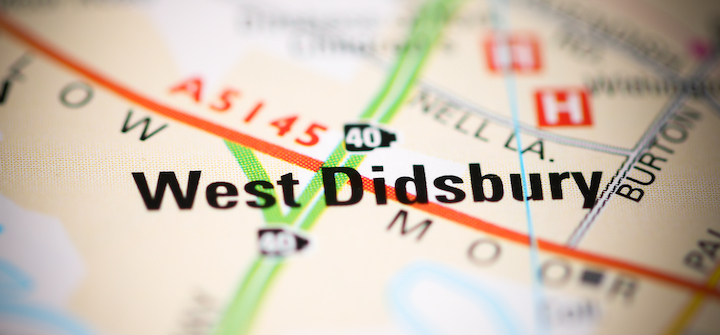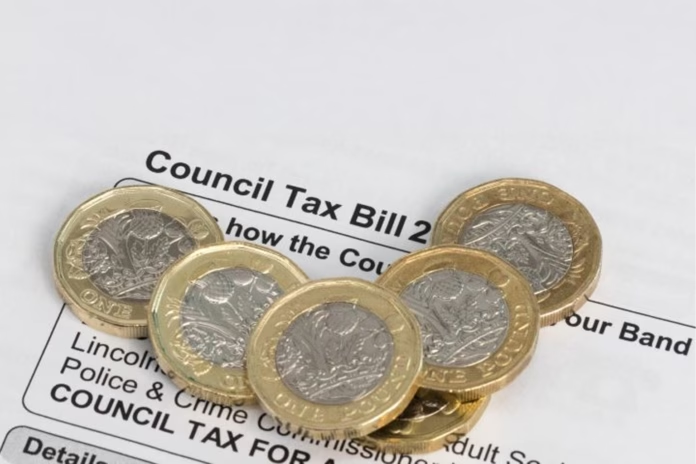Issues of fairness and accountability were summed up in the 1970s by the ‘West Lothian Question’ in the context of the debate on devolution to Scotland, Wales and Northern Ireland. Conrad Hall examines recent responses to council failures in England, and offers a local government version.
 I know that no one wants to, but recent events have brought the issue even more to the fore and we can’t ignore it any longer. If no one else will then I guess it must be up to me, because I’m afraid that it is time that someone asked the West Didsbury question.
I know that no one wants to, but recent events have brought the issue even more to the fore and we can’t ignore it any longer. If no one else will then I guess it must be up to me, because I’m afraid that it is time that someone asked the West Didsbury question.
Underpinning that is the perennial question of whether a local authority can go bankrupt. There is an easy theoretical answer to that, which is, of course, a resounding “no”. Local authorities exist to provide services that the market can’t, or won’t, deliver.
I like this definition because it differentiates the functions of councils from those of the private sector, while leaving space for opposing political views on just how significant the market failure needs to be before the local state steps in.
This isn’t an article about Croydon, Slough or Thurrock, but I may as well name them as everyone reading this will have those and other organisations on their mind.
Financial failure
It follows from this that local authorities can’t actually go bankrupt. They provide services we define as a society as both essential and that will not otherwise be provided and so, in the event of financial failure, some other arm of the state will step in.
Certainly, the default assumption in markets is that local authorities’ credit rating should be the same as that of the UK government, although this will get tested if you actually try to get a commercial credit rating. The other argument underpinning this is that the state’s tax-raising powers mean that income is ultimately unconstrained and hence that bankruptcy can’t happen.
However, the trouble with theoretical arguments is that they often fail to survive first contact with the real world.
This isn’t an article about Croydon, Slough or Thurrock, but I may as well name them as everyone reading this will have those and other organisations on their mind. Those councils haven’t gone bankrupt in the true sense of the word, and I know that issuing a section 114 notice doesn’t mean they are bankrupt; it’s just a convenient journalistic shorthand.
In fact, if you look back to the 1988 Local Government Finance Act, and the circumstances that led to its creation, then it is entirely clear that it was intended as a power to support the CFO in preventing financial failure rather than to declare such a failure after the event.
The deficits that Croydon and others have reported can’t be fixed by capitalisation, as the long-term interest payments won’t be affordable without allowing more market failure than we are prepared to tolerate as a society.
Emergency support
But the financial failure at those councils isn’t so very different from bankruptcy in the ordinary sense of the word. Powers have been taken away from them and emergency financial support provided and, while that doesn’t look exactly like a bankruptcy in the private sector, in some important respects it’s not so very different either.
The question then turns to what that financial support should look like. Let’s move beyond capitalisation straight away, because at best it’s just a short-term sticking plaster. The deficits that Croydon and others have reported can’t be fixed by capitalisation, as the long-term interest payments won’t be affordable without allowing more market failure than we are prepared to tolerate as a society.
No-one is seriously advancing the logical but extreme extension of this, which would be to accept that those boroughs should stop collecting household refuse or whichever other service you choose to use as an example.
And it follows from this that those boroughs need more money. The Department for Levelling Up, Housing and Communities has, sort of, risen to the challenge and provided a limited indication of its thinking on the West Didsbury question by allowing council tax increases above the limit of 5% without a referendum. Thurrock and Slough can go to 10% and Croydon to 15%.
Why have I described this intervention in rather less than glowing terms? Well, if you even glance at the reported financial position of those authorities, this council tax rise, if agreed by the local politicians, won’t actually fix the problem.
I hadn’t bothered to do the maths when I drafted this article and, since then, Croydon has apparently asked for £540m of debt to be written off. A 15% council tax rise will obviously not raise £540m or anything like that. Without checking Croydon’s exact number, a decent rule of thumb for a large London borough is that 1% on council tax will raise about £1m. If you assume that the first 5% is for “ordinary” revenue then Croydon would gain an extra £10m to deal with its deficit and hence require 54 years to clear it.
Reducing that to a more reasonable sounding recovery period of ten years, which would still be very long, and it would follow that council tax rises of 15% for each of the next ten years would be required. It doesn’t really matter whether my maths is right on this or not, because the point, I hope, is entirely clear: this year’s council tax rises would need to be repeated for a number of years to get anywhere near recovering the deficit in any sort of reasonable timeframe.
The ‘broad shoulders’ argument for everyone paying a bit is seductive. But why should a resident of West Didsbury pay for Croydon’s acknowledged financial failings?
Room151’s Monthly Online Treasury Briefing
February 24 2023
Online
Public sector delegates – register here
Angry reaction
By the way, I’m using Croydon as my example because I live in one of the boroughs that borders it, and for no other reason, because that means I’ve seen a flavour of the reaction from some of the local papers, blogs and websites.
Local papers, blogs and websites aren’t wholly reliable, of course, but I expect the amount of anger that I’ve seen there is pretty representative. That’s wholly understandable. A 15% rise in council tax, if agreed, will really impact some families and even those more comfortably off will certainly notice it. And since a financial solution based on council tax alone would require increases at that level for at least several years then everyone will really feel the impact far more than what is already a big hike for next year alone.
But what’s the alternative?
Croydon needs money, because as a society we aren’t prepared to accept radical differences in the quality of core services between different local authority areas. We all know that money has to come from somewhere and, when you boil the issue down, there are only two places it can come from.
It must come from taxpayers, because that’s basically where the money for public services comes from. And, in this context, there are only two relevant groups of taxpayers: Croydon’s taxpayers and taxpayers generally.
So, either everyone must chip in a bit to support Croydon or Croydon’s residents must do so. The “broad shoulders” argument for everyone paying a bit is seductive, because none of us could really claim we would feel the impact of the fractional tax rise that we would suffer. But why should a resident of West Didsbury (which is nowhere near Croydon) pay for Croydon’s acknowledged financial failings?
If you believe in local democracy and its power to change residents’ lives for the better, then I think you must also accept that there must be local accountability for failure.
Local accountability for failure
I know that this seems very harsh on struggling families in Croydon. However, if you believe in local democracy and its power to change residents’ lives for the better, then I think you must also accept that there must be local accountability for failure. I also think that needs to go beyond the individuals concerned, although I have no problem with the idea that there should also be individual accountability.
Pursuing this to its logical extreme, Croydon’s residents, in some collective sense, had a degree of accountability for the financial failure of their council. They could have attended Council, Cabinet and Audit Committee meetings. They could have asked questions directly or using Freedom of Information powers or any number of other interventions, including, dare I say it, through the ballot box.
I accept that this is an extremely harsh interpretation. I don’t know what my local council is doing, after all. But Croydon’s residents could at least in theory have tried to intervene. They had a chance. The residents of West Didsbury had no such opportunity or accountability. So, if it is unfair on Croydon’s residents to have to pay so much more in council tax, wouldn’t it be even more unfair for residents of West Didsbury to have to pay even some of that?
One way or another, if we are discussing the accountability of local authorities, in the context of financial failure, then it is really a binary choice. Either the cost of such failure must be carried locally or it should be carried nationally. You have to come down on one side of the line or the other on the West Didsbury Question.
Conrad Hall is corporate director of resources at the London Borough of Newham, but grew up in Didsbury, Manchester.
—————
FREE weekly newsletters
Subscribe to Room151 Newsletters
Room151 LinkedIn Community
Join here
Monthly Online Treasury Briefing
Sign up here with a .gov.uk email address
Room151 Webinars
Visit the Room151 channel














